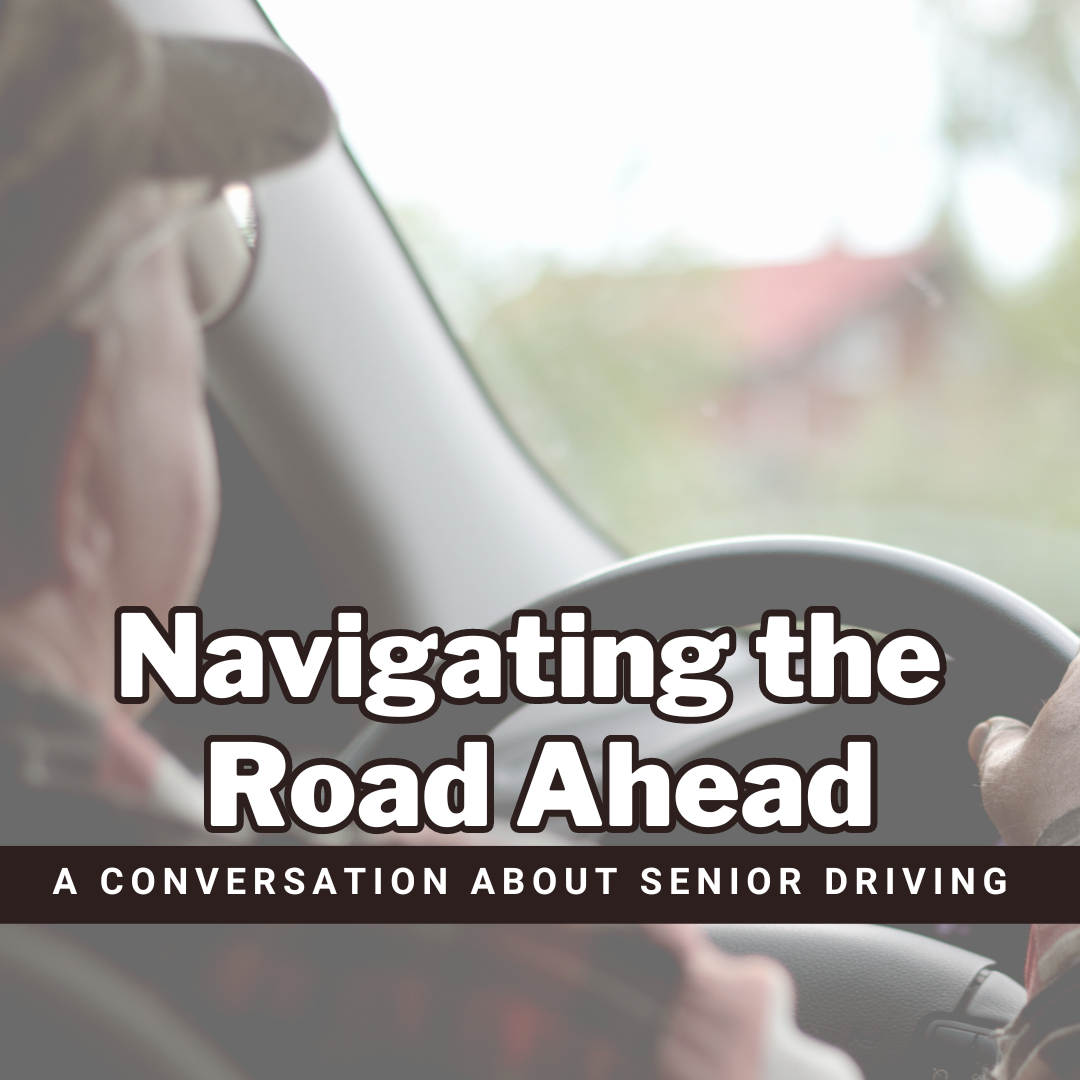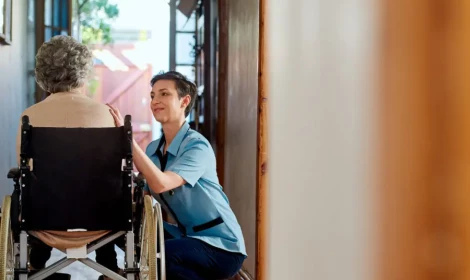How to Have the Conversation About Senior Driving
To help you discern whether your loved one may be reaching a point where driving is no longer safe read click to read the full story. Learn what to look for and tips on how to have this often sensitive conversation.

Inevitably, there comes a time when roles reverse, and we find ourselves concerned about the well-being of our aging parents, particularly when it comes to their ability to drive safely. Addressing this issue is often as challenging as it is necessary. AARP, a trusted resource for individuals aged 50 and above, notes, "Driving is often linked to independence for seniors, but there may come a time when it's no longer safe." This acknowledgment is a crucial starting point for the conversation about senior driving. To help you discern whether your loved one may be reaching a point where driving is no longer safe, consider the following:
Observe for Possible Changes
Changes in Driving Habits
Watch for alterations in your loved one's driving habits. Frequent close calls, increased traffic violations, unexplained scratches on the car, or a noticeable decline in overall driving skills may indicate a need for further evaluation.Diminished Executive Functions
Executive functions are cognitive processes which enable us to regulate, control, and manage our thoughts and actions. These functions are critical for safe driving, as they involve decision-making, adapting to changes, and staying focused on the task at hand. As we age, executive functioning naturally declines, and in cases of dementia, this decline can be more pronounced. When executive functioning is diminished drivers' often lack the ability to make quick decisions on the road.Memory Concerns
Memory lapses or forgetfulness can be red flags. If your loved one struggles to remember familiar routes, becomes disoriented while driving, or forgets the purpose of a trip, it's time to consider the impact on their driving abilities.
As you can imagine, any conversation about driving is not just about the act of driving or giving up a set of car keys. It is about addressing cognitive and physical changes that impact a person's ability to operate a vehicle safely. But it is also about a loss of independence for the driver and additional responsibility for whomever will provide transportation. Realization may make broaching the subject even more daunting.
Approaching this conversation with empathy and sensitivity is crucial. Here are three ways to initiate the dialogue with your loved one.
Express Concerns from a Place of Love
Begin by expressing your love and concern for their well-being. Share specific instances that have raised worries about their safety on the road. Emphasize that the goal is to ensure their continued well-being and independence.Highlight Alternative Transportation Options
Instead of framing the conversation solely around giving up driving, focus on alternative transportation options available in your family or your community. Highlight the convenience of rideshare services, public transportation, or family and friends willing to assist with transportation needs.Involve a Neutral Third Party
Sometimes, having a professional guide the conversation can be beneficial. Consider involving a doctor, a driving specialist, or a member of the Beyond Driving with Dignity program to provide an objective assessment and recommendations.
Introducing Beyond Driving with Dignity
Beyond Driving with Dignity is a program that offers a comprehensive approach to addressing concerns about senior driving. Developed by Matt Gurwell, a retired Ohio State Trooper, this program equips families with tools for early intervention, identifies signs of decline, and suggests lifestyle changes to enhance safety. This one-hour self-assessment program covers the role of dementia, memory, and executive functioning in older driver safety. It sheds light on the importance of addressing cognitive decline for the well-being of our senior drivers. Beyond Driving with Dignity aims to save lives while preserving the dignity and independence of older drivers.
Should you Consider Beyond Driving with Dignity?
If you answer yes to more than one of these questions, please reach out to us for a free consultation.
Do you live away from your loved-one and aren’t completely sure of his or her ability to continue driving safely?
Could you use some help and direction plotting the future of your loved one’s safe driving career?
Are you unsure of how to address the issue with your loved one, or confused about how to initiate “the talk”?
Not sure what resources are available to you?
Do you want a skilled and experienced professional to help bring or maintain calm and stability to what can be a very complex and sensitive family issue?
Are you looking for a program that will help further your loved one’s ability to remain a safe driver, and to continue to monitor their skills as they progress through the aging process?
Conversations about senior driving are delicate yet necessary. By recognizing signs of decline, understanding the impact of diminished executive functioning, and approaching the topic with empathy, you can navigate this transition with care and consideration. The Beyond Driving with Dignity program stands as a valuable resource, offering guidance and support to families as they address the complexities of senior driving. For more information please call (239) 330-2133 or email cynthia@seniorcareauthority.com.





